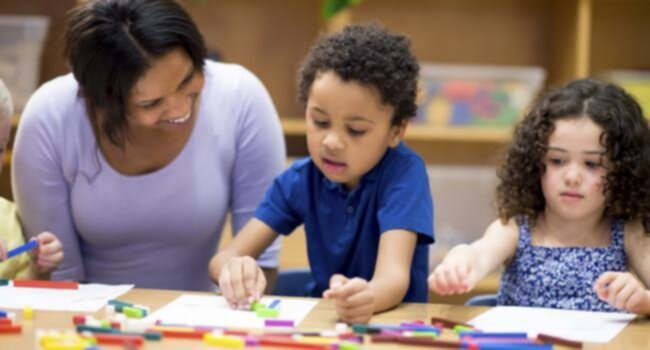
Student populations are becoming more diverse and schools need to begin to foster an educational environment that is culturally aware enough to include all ethnic backgrounds in the classroom. Becoming more cognizant of the many cultures and ethnic groups that make up the student body will not only encourage children to seek out and learn about people and places that are foreign to them, but create an inviting and inclusive learning experience in which every child may participate to the best of his or her ability. This includes maintaining a focus on parental engagement as well, schools can go one step further in their effort towards culturally responsive teaching by developing a method for parental involvement, particularly with children who hail from families that are underserved in the community. Studies have shown that a growing percentage of Hispanic students are part of families where the parents completed only a portion of their own education. In addition, many Hispanic parents have a difficulty with access to teachers due to cultural and language difficulties that may exist. Some of them may also be wary of initiating or continuing any contact with the school due to their legal status.
Cultural awareness isn’t only about tolerance of other cultures in the classroom it also requires a knowledge of the specific backgrounds and barriers of the families of minority students. Hispanic parents decline to keep communication with teachers and school staffs for a variety of reasons and teachers should be trained in how to properly navigate these issues. A number of these families don’t feel welcome at the school, they are uncomfortable in social interactions with teachers, or believe that the school does not hold the same values as they do for the well being of their child. There’s a perception among some families that the school treats their children differently than others because they come from low-income backgrounds or live in public housing. Proper cultural awareness requires that teachers are equipped to navigate these matters successfully in order to steer the children towards positive and meaningful academic outcomes. The value of training teachers in cultural awareness is found in the effect it can have on the student body from all walks of life.
Many schools and programs offer bilingual support from teachers who have learned the language of the majority of English Language Learners in the classroom and they make a concerted effort to engage with the parents of these children in their native tongue. It’s a way to acknowledge the sensitivity of the family while also attempting to bring them into the learning process of the student in order for that child to achieve his or her goals in class.
The Latino Family Literacy Project can help your school with being more culturally aware. This award-winning program has years of experience working with teachers and culturally diverse students and parents. If you’re interested in finding more information about this program schedule a training meeting. They offer both online webinar training and in person workshops.
If you’re interested in the latest information regarding culturally aware classrooms visit our Facebook and Twitter. We look forward to hearing from you.
